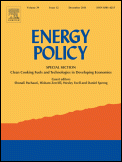 Founded in response to the 1973 oil shock, the International Energy Agency (IEA) is arguably still the most important multilateral organization for energy-importing countries. Yet, the global geopolitical landscape has changed considerably since the IEA’s creation. The rise of new energy consumers, new energy-related challenges and new international energy forums prompt a rethink of the agency’s current role and institutional design.
Founded in response to the 1973 oil shock, the International Energy Agency (IEA) is arguably still the most important multilateral organization for energy-importing countries. Yet, the global geopolitical landscape has changed considerably since the IEA’s creation. The rise of new energy consumers, new energy-related challenges and new international energy forums prompt a rethink of the agency’s current role and institutional design.
This article seeks to contribute to the recent debate on the future role of the IEA by examining specific drivers, avenues and constraints for institutional reform. The method used is SWOT analysis, which allows to summarize the key factors emanating from an assessment of an organization’s internal characteristics (strengths and weaknesses) and its external environment (opportunities and threats).
Building on this SWOT analysis, the article formulates a strategy for the IEA to remain the focal point in global energy governance. Key elements of this strategy include: stronger engagement with new consumers, rapprochement with OPEC, becoming a leading voice in the energy transition, and changing the agency’s internal governance practices.
Access the article here (subscription required). See more publications here.